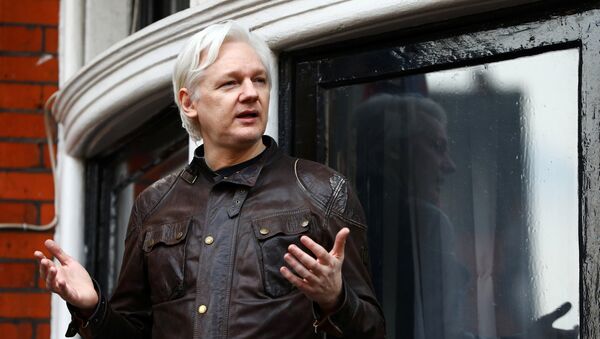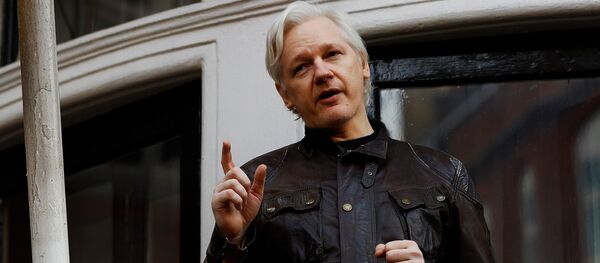VLADIVOSTOK (Sputnik) — Assange explained that even though he shared similar political views with former National Security Agency contractor Edward Snowden, who received a residence permit in Russia after leaking classified documents pertaining to mass surveillance practices by US authorities, he decided that it was wiser to stay in a country that is not a political opponent to the West, such as Ecuador.
The WikiLeaks founder also refuted his alleged ties to the Russian government, as well as alleged attempts to hinder Hillary Clinton’s election campaign on behalf of the Kremlin with his publications. Assange explained that by making such statements Clinton had been seeking to escape her responsibility for incompetence and unpopularity, which resulted into her defeat to Donald Trump during the presidential race last year.
According to Assange, the former US secretary of state was also intending to disrupt his support in his own country, Australia, through such allegations. He stressed that WikiLeaks had never received any information from any government.
The journalist also told Pozner that the UK authorities had spent tens of millions of dollars on monitoring him inside the embassy, installed video cameras in the building across the road and even deployed a surveillance group in the department store nearby. He added that the authorities bribed the embassy employees to install intercepting devices on each floor of the building.
The interview was filmed at the Ecuadorian Embassy in London, where Assange has been residing since 2012.
The WikiLeaks website was launched by Julian Assange in 2006. Since then, the site has released millions of classified diplomatic documents from around the world on numerous espionage practices, war crimes, torture and many other human rights violations. In July 2016, WikiLeaks published over 19,000 emails apparently hacked from the Democratic National Committee. A number of US intelligence agencies have concluded that Russian actors may have delivered the emails to WikiLeaks, but did not provide evidence to support such claims.



